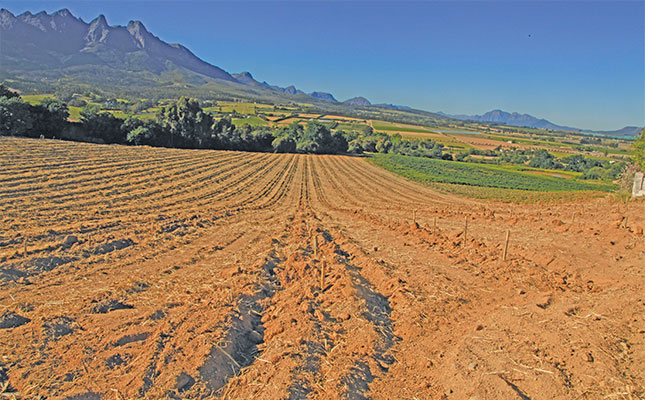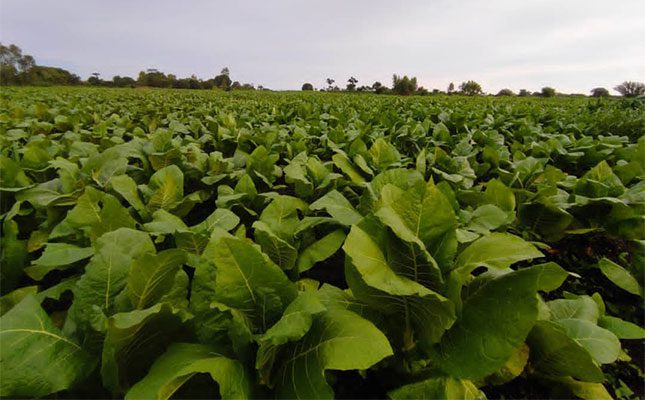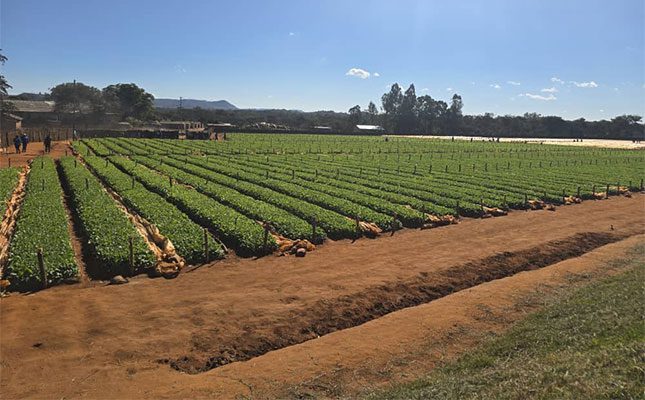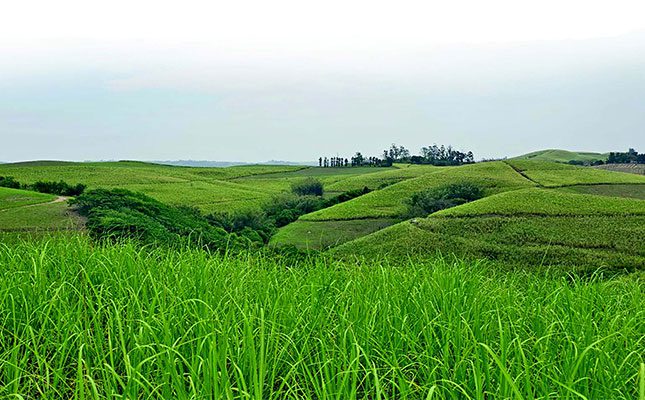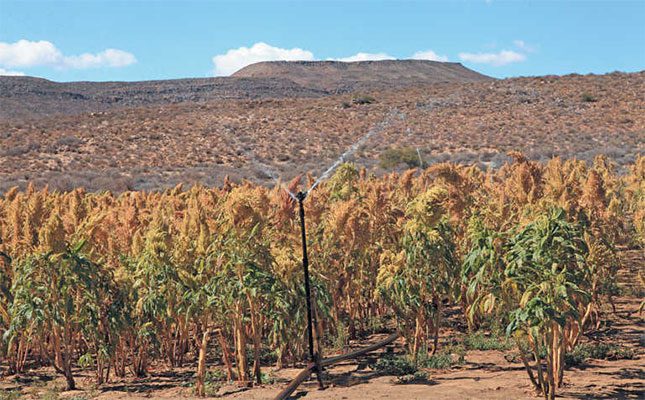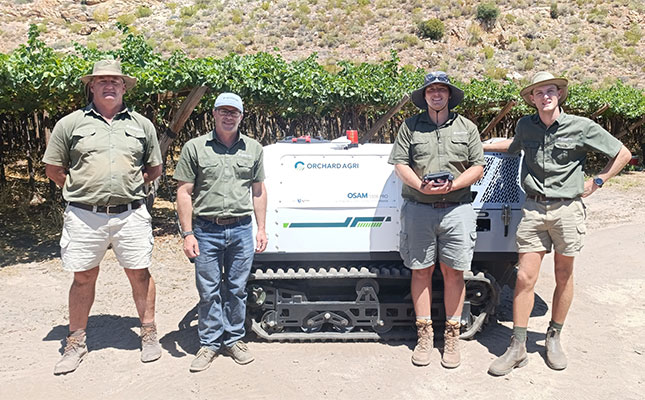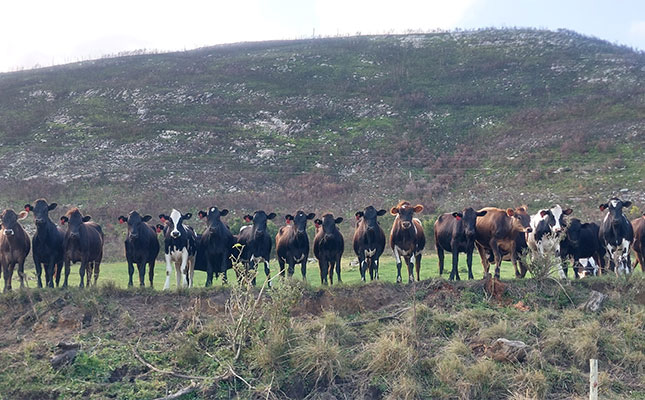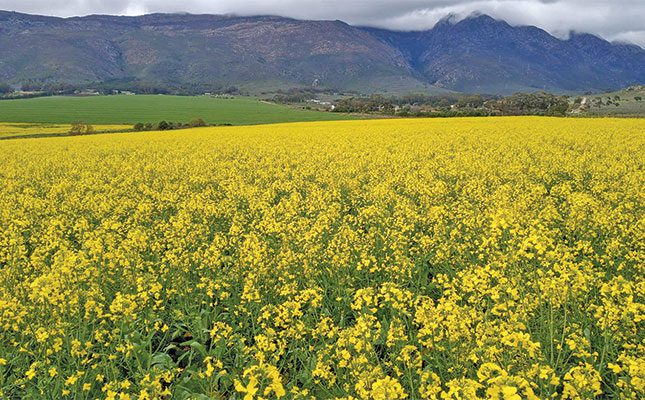
Canola (Brassica napus) belongs to the cabbage family (Brassicaceae) and was originally bred as a commercial oilseed crop in Canada during the 1970s. Today, canola is cultivated in various parts of the world, with South Africa emerging as one of the key production regions, having over 600 producers dedicated to this valuable crop.
Canola is typically grown in cold climates. In South Africa, it is planted in winter and harvested in spring. This makes the crop well suited to the Mediterranean-like climate of the Western Cape, which enjoys cool, moist conditions during the growing season.
The region’s combination of cool nighttime temperatures and sea breezes creates an ideal environment for canola cultivation.
Western Cape leads production
Although South Africa’s canola production is concentrated in the Western Cape, smaller quantities are also grown in the Eastern Cape, North West, and Limpopo.
Over the past five years, production has increased threefold, driven by better cultivars delivering better yields, thus making the crop very lucrative for farmers.
As health-conscious consumers seek alternatives to other cooking oils, the demand for canola oil continues to grow. In 2024, the area under canola production in South Africa increased from 127 000ha to 145 000ha, with an estimated national yield of 2t/ha.
SOILL’s role
Zander Spammer is an agricultural resource manager at Southern Oil (SOILL), an oil extraction plant and edible oil refinery situated in Swellendam. He says SOILL played a pivotal role in establishing canola as a commercially viable crop in South Africa.
In 1997, SOILL began processing locally grown canola seeds and, since then, the company has diversified into a range of products, including oils for wholesale, retail, and food services. In 2009, SOILL produced its first batch of refined grapeseed oil and launched B-well Foods in 2010, expanding its presence in the edible oils market.
Today, SOILL works closely with local canola producers, whom it considers to be integral partners in its own success. With a focus on quality, SOILL aims to simplify consumers’ lives while promoting a healthy, balanced lifestyle.
Canola offers several advantages for producers, making it an attractive crop in South Africa’s agricultural landscape.
The life cycle of a canola plant spans about 6,5 months from germination to seed production. With its rapid growth cycle and high cash value, canola is a popular choice for producers looking to diversify their crop rotations, especially in rotation with wheat.
According to Spammer, canola has multiple benefits, because not only does it help control weeds, but it also aids in the management of root diseases in other grain crops.
Canola meal is an excellent source of protein, amino acids and energy for cattle.
Challenges
Like any crop, canola production does come with challenges. One of the primary hurdles is selecting the right cultivars and planting them at the optimal time. Moisture availability during planting is also crucial, as canola requires adequate moisture to establish healthy seedlings.
“Weather conditions at the planting stage play a pivotal role,” says Spammer. Excessive rain in the Swartland this year led to waterlogging and negatively affected crop growth.
“Fortunately, in other parts of the Western Cape, favourable weather conditions have helped boost this year’s harvest,” he adds.
In addition, the transition from traditional deep ploughing to minimum tillage or conservation farming has increased the abundance of slugs.
Exotic slug species, including Milax gagates (greenhouse slugs) and Prietocella barbara, commonly known as tower snails or toringslakkies, have been especially challenging this season, causing damage to canola seedlings and threatening yields.
Management strategies used to mitigate these threats range from chemical to mechanical control.
Spammer explains that producers pull tyres behind their tractors to physically break the eggs and dormant slugs.
After planting has commenced, producers throw out pellets (a form of chemical control) to control them further.
Another insect pest commonly associated with damage in canola production is Brevicoryne brassicae (cabbage aphid), and a particularly challenging pest is Plutella xylostella (diamondback moth). The larvae of this moth cause substantial damage during their feeding stage.
From the second larval phase and onwards, they feed on the underside of the leaves, stripping the lower leaf but leaving the upper epidermis intact, which results in window-like damage.
The window-like areas soon become large, irregular holes as the leaf grows and expands. Larger larvae chew irregular holes right through the leaf. Occasionally, damage results from feeding on the ripening seed pods.
Pesticides are the common control strategy used by producers; however, overuse has caused this pest to develop insecticide resistance, thus an integrated approach with other control strategies like weed control and enhancing the surrounding environment to attract natural enemies should be explored.
A healthier alternative
One of the major benefits of canola production is the high quality of the oil produced.
Canola oil is widely regarded as one of the healthier cooking oils available. It is low in saturated and trans fats and is high in heart-healthy mono-unsaturated fats.
Canola oil is low in saturated and trans fats and high in heart-healthy monounsaturated fats.
Health organisations like the Cancer Association of South Africa recognise canola oil as a heart-smart cooking oil.
In addition to cooking oil, a variety of by-products can be obtained from canola plants, including high-protein livestock feed, fertiliser, hydraulic fluid, and even printing ink. This makes canola a versatile crop that provides multiple revenue streams for producers.
At SOILL, agricultural experts work closely with local canola producers to help them maximise yields.
By offering guidance on planting practices, fertilisation, pest control, and harvesting strategies, SOILL’s team plays a critical role in ensuring the success of South Africa’s canola producers. Through regular farm visits, they assess soil health, inspect crops, and develop personalised plans tailored to each farm’s unique environment.
Canola’s growing success in South Africa, particularly in the Western Cape, highlights the potential of this versatile and profitable crop. With its health benefits, adaptability to local conditions, and potential for multiple uses, canola is positioned to play a key role in South Africa’s agricultural future.
With support from companies like SOILL and continued investment in production practices, South Africa’s canola industry is likely to continue to thrive for years to come.
Email Zander Spammer at [email protected].
Get trusted farming news from Farmers Weekly in Google Top Stories.
➕ Add Farmers Weekly to Google ✔ Takes 10 seconds · ✔ Remove anytime

